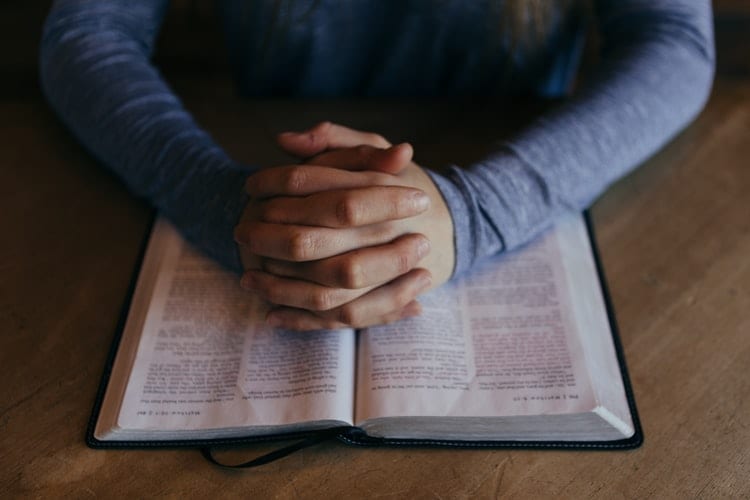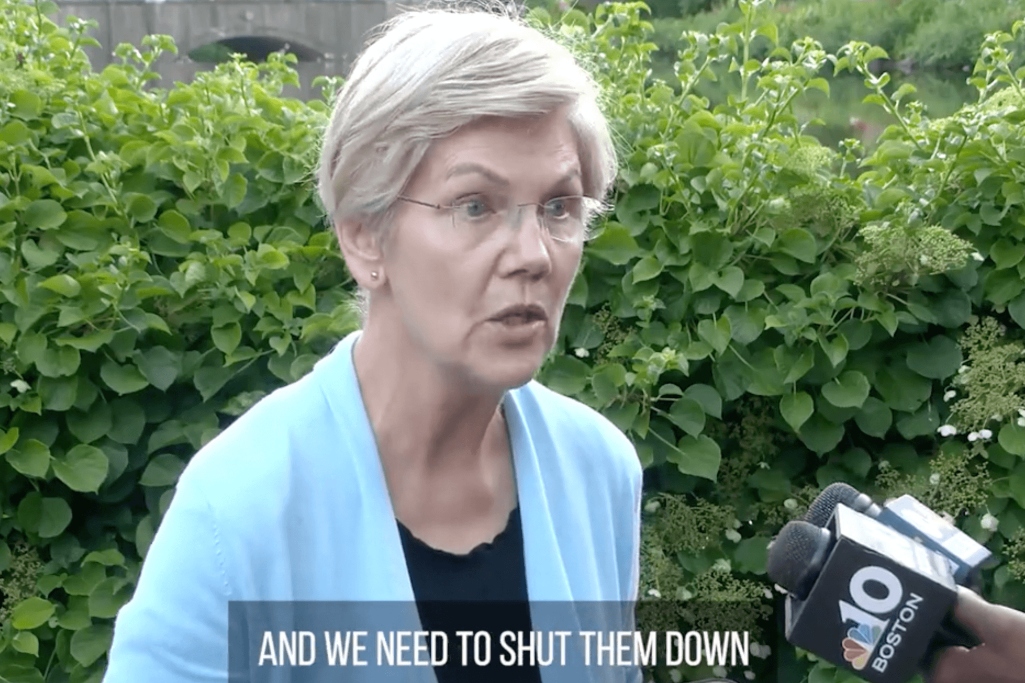Followers of Jesus find themselves in a unique and difficult situation when it comes to this year’s presidential election. Many of us see no qualified candidate for whom to vote. At present, that is my personal conviction and position, something I have been clear about on multiple occasions and through various channels. I cannot, as I currently see things, vote for either of the major party candidates. My conscience will simply not allow it, even as I consider the voting process to be a wonderful blessing and privilege we all have in America.
There are also faithful followers of Christ, many who are close and dear friends of mine, who feel they can (and even must) vote for a “lesser of two evils” candidate. This is because so much is at stake, particularly Supreme Court appointments. I can understand, appreciate and respect their position. This is a very difficult moment for all of us, and we should be both fair and honest about this reality.
The 2016 election is important, but it is too often divisive and open to unhealthy rhetoric. At Southeastern Baptist Theological Seminary, we want to pursue the loving and civil discourse for which our school has come to be known. We know that brothers and sisters in Christ can hold and express differing positions even as they love and respect one another.
As a picture of this, I have asked two of our ethics professors, Daniel Heimbach and Mark Liederbach, to share their personal positions and approaches to this timely and increasingly crucial question. They are brothers, friends, and colleagues, and they regularly show grace and respect for each other even when they have different perspectives.
Why evangelicals should not sit out the 2016 presidential election
Daniel Heimbach, senior professor of Christian ethics
The 2016 U.S. Presidential campaign season has just entered the general election period, and American evangelicals now face the repellent prospect of voting for one of the major party candidates – both of whom we think is terribly flawed and dangerous – or sitting out this election either by not voting or symbolically voting for a write-in we know has no chance. I am writing to explain why I think we must vote for one of the repellent major party candidates, and why I believe sitting it out is not what God desires. All Christians want to be Christ-like and faithful to the Word of God. But we differ sometimes on what that is. I will explain why being like Christ and following His teaching leads me to think we must not sit out this election. But I respect those who love the Word of God and reach other conclusions. The important thing is desiring to honor God and willingness to be corrected by what He says.
God does not call Christians only to vote for political candidates who reach minimal levels of acceptability. Rather He calls us to be a good influence within real world limits (Jeremiah 29:7), which in our case means voting for a comparatively “better” candidate over a comparatively “worse” one from among those our governing system makes available. Candidates are never sinless and some are positively wicked. But that does not make those voting for an available candidate complicit in his or her flaws.
Jesus paid taxes supporting the highly immoral Roman government occupying first-century Judea (Matthew 22:15-22). That did not make Jesus complicit in its failings and neither will voting for one of the available candidates in this election, even though both are flawed and dangerous.
I think sitting out this election is a version of the mistake Jesus warned not to make in the parable He told about a field of wheat mixed with tares (Matthew 13:24-30, 36-43). In that parable Jesus addressed how Christians should live in present society, and he warned against taking an all-or-nothing approach toward bettering life in common with unbelievers. The field represents mixed society under present world limitations (Matthew 13:38). And, while God plans a perfect world to come (Matthew 13:41), He does not make Christians responsible for reaching that perfection. Rather, for now, He only wants us to be a good influence while accepting present world limitations that are far from ideal. We are wheat, not tares. But we must accept living in mixed society with them and not weed them out (Matthew 13:29-30).
We can strive for better candidates in the future. But in the 2016 presidential race, that process is over. Our major party candidates are selected, and now all we can do is promote or undermine which is elected.
Whether we vote in this election or sit it out, we must realize that whatever we do will affect the outcome. There is no option with no impact at all. Now the only way we have of influencing this election for the better is to assess which candidate is less flawed or dangerous, and then to vote for that candidate. I believe that is what Jesus expects. I believe that is what He would do in our place. And I believe that is the truest and best way to please God in this election.
Why evangelicals should exercise conscientious objection in the 2016 presidential election
Mark Liederbach, dean of students and professor of theology, ethics and culture
When it appears neither of the two candidates running for president provides a positive option, questions abound about the proper way for Christian to think about voting.
There are some who would make the case that it is better to vote for the “lesser of two evils” candidate. Otherwise the chance to advance an agenda may be lost, or more negatively stated, the opportunity to slow a decline would be wasted. Such a position is not the same as mere pragmatism, though it is possible to construe it as such. Giving the benefit of the doubt to right-minded Christians taking this position, we should understand that there is a genuine desire to honor the Lord by using the gift of a meaningful vote to promote good or limit evil.
On the other hand, there are those that would make the case (including myself) that there comes a time when a person’s conscience will simply not allow a vote to be cast for either candidate. This position is sometimes critiqued as a form of misguided “perfectionism” in which the voter refusing to choose one of the two leading candidates is afraid of being complicit with evil. Critics will then point out that in a fallen world everything is tainted by evil, thus a demand for such “perfectionism” is not simply unrealistic of any candidate shy of Jesus himself. When taken to its logical extreme, such an argument would make life unlivable.
I beg to differ.
While it can be argued that the “lesser of two evils” choice is sometimes necessary, such a decision assumes that only option A or B has value. It also assumes that a clear “lesser of evils” can be determined.
But there is a third option, and it would be wrong to describe it as “throwing away a vote.” That third option is called “conscience.”
A choice to follow conscience arises when the two presented options both have such evil positions, platforms and legacies that a voter cannot in good conscience support either one. In that situation the voter can still choose to go to the polls and vote for other offices (Senate, Governor, etc.) with a clearer choice, while abstaining from voting for the particular office that offers up wretched candidates (in this case, president).
Such a decision can be good and wise because it honors the right and privilege we are granted to participate in our governing process while also having the backbone to say: “The time has come when I cannot face my Lord with a pure heart by voting for either of these candidates.”
In this particular election, one candidate is in the midst of likely corruption and supports an agenda that includes abortion, gender confusion, legalized euthanasia and legalized marijuana. The other has built a life on the back of gambling, pornography, bigotry, divorce, abortion and amassing a fortune by preying on the poor.
These two evils don’t seem to have a clear “lesser.”
One can support a party platform (if the voter thinks one has long-term benefits) by voting for other offices while simultaneously abstaining from voting for one of the two most wretched candidates in history. There are times when conscientious objection grounded in an ethic of worship is the more responsible choice. I believe this election cycle is one of those times.
A position that argues “Never Hillary & Never Trump” may not be popular, but it may well be the highest act of worship a Christian can offer.
Conclusion
I am so grateful for these two men and the gift they are to our students. My hope and prayer is that this is a model for all those who live together under the Lordship of King Jesus. We can lovingly and graciously express our views, even when we disagree, and then join hands as we continue about the business of fulfilling the Great Commission until King Jesus returns! In all of this we must remember and never forget: our hope is not and has never been in a president. It is in a King.
(EDITOR’S NOTE – Danny Akin is president of Southeastern Baptist Theological Seminary. This column originally appeared on the Between the Times blog.)


